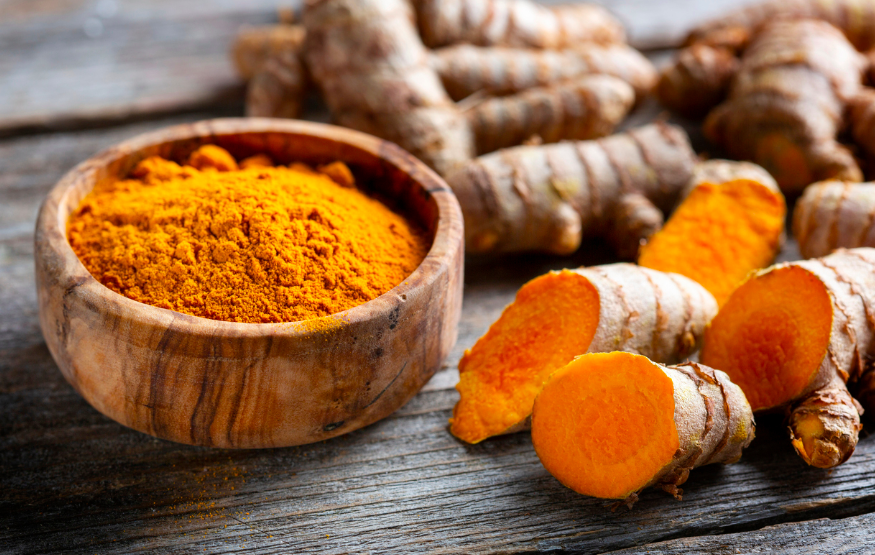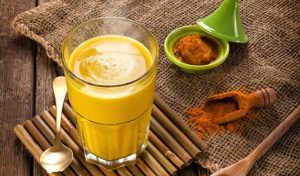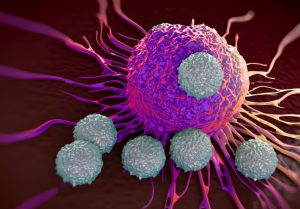
Turmeric Prevents Heart Attack/Cancer.

Turmeric, a radiant yellow zest from the Curcuma longa plant, has been read up for its potential medical advantages, remembering its job for forestalling coronary failures and malignant growth. The active compound in turmeric responsible for many of its health benefits is curcumin.
Anti-inflammatory Properties in turmeric:

The anti-inflammatory properties of turmeric, specifically attributed to its active compound curcumin, play a crucial role in its potential health benefits. Inflammation is a natural response of the body's immune system to injury or infection, but chronic inflammation is associated with various chronic diseases, including heart disease and cancer. Here's how turmeric's anti-inflammatory properties work:
Inhibition of Inflammatory Pathways:
Curcumin has been displayed to impede the action of atoms engaged with the incendiary cycle. One key pathway focused on by curcumin is the NF-kappaB pathway, which controls the outflow of favorable to fiery qualities. By hindering NF-kappaB, curcumin lessens the development of provocative atoms.
Reduction of Inflammatory Mediators:
Curcumin can also decrease the levels of certain pro-inflammatory substances, such as cytokines and chemokines. These particles expect a section in propelling disturbance, and by adjusting their creation, curcumin helps ease irritation in the body.
Antioxidant Activity:
Chronic inflammation and oxidative stress often go hand in hand. Curcumin's cell support properties add to its calming impacts by killing free extremists. Free extremists are receptive particles that can harm cells and add to aggravation. By searching for these free revolutionaries, curcumin decreases oxidative pressure and subsequent irritation.
It's important to note that while turmeric and curcumin show promise in combating inflammation, the effectiveness can vary among individuals. Moreover, the bioavailability of curcumin is relatively low, meaning that the body may not absorb it well. Combining turmeric with black pepper (containing piperine) or choosing supplements formulated for better absorption can enhance the bioavailability of curcumin.
While turmeric's mitigating properties are deep-rooted, it's urgent to talk with medical services before involving it as an enhancement, particularly if you have existing ailments or are taking prescriptions. Dietary changes, including integrating turmeric into your feasts, can be a piece of a general methodology for keeping a solid way of life and forestalling persistent sicknesses.
Antioxidant Effects:

Turmeric, specifically its active compound curcumin, possesses notable antioxidant effects. Antioxidants are substances that help counteract the damaging effects of free radicals in the body. Free radicals are unstable molecules produced during normal metabolic processes or in response to environmental factors such as pollution, radiation, and tobacco smoke. A gathering of free extremists can prompt oxidative pressure, which is related to different sicknesses, including malignant growth and cardiovascular circumstances. Here's how turmeric's antioxidant effects work:
Neutralization of Free Radicals:
Curcumin is a potent antioxidant that can neutralize free radicals by donating electrons. This forestalls the oxidative harm that free revolutionaries can cause to cell structures, including proteins, lipids, and DNA.
Enhancement of Antioxidant Enzymes:
Turmeric has been displayed to invigorate the movement of the body's cancer prevention agent catalysts, for example, superoxide dismutase (Grass), catalase, and glutathione peroxidase. These proteins assume a significant part in killing receptive oxygen species (ROS) and shielding cells from oxidative harm.
Protection Against Lipid Peroxidation:
Lipid peroxidation is a chain reaction that occurs when free radicals attack and damage the lipids (fats) in cell membranes. Curcumin has been found to restrain lipid peroxidation, assisting with keeping up with the respectability of cell films and forestalling oxidative harm.
Metal Chelation:
Curcumin can chelate or bind to metal ions, such as iron and copper, which can participate in free radical reactions. By restricting these metals, curcumin can assist with forestalling the arrangement of free revolutionaries and diminish oxidative pressure.
Support for Mitochondrial Function:
Mitochondria, the energy-producing organelles within cells, are vulnerable to oxidative damage. Curcumin might help safeguard mitochondrial capability by rummaging free extremists and keeping up with the equilibrium of cell redox processes.
Sweaty hands? – What is the solution?
The cell reinforcement properties of turmeric add to its potential medical advantages, remembering its job for lessening aggravation, forestalling constant sicknesses, and supporting general prosperity. However, it's essential to note that the bioavailability of curcumin can be limited, and strategies such as combining turmeric with black pepper (containing piperine) or using specialized formulations may enhance absorption.
As always, individuals with specific health concerns or those taking medications should consult with a healthcare professional before incorporating turmeric supplements into their routine. Dietary sources of turmeric, such as adding the spice to meals, can also contribute to its antioxidant effects.
Cardiovascular Benefits:

Turmeric, and specifically its active compound curcumin, has been studied for its potential cardiovascular benefits. While research is continuous, a few instruments have been recognized that propose turmeric might add to heart well-being and decrease the gamble of cardiovascular infections, including coronary failures. Here are some ways in which turmeric may provide cardiovascular benefits:
Endothelial Function:
The endothelium is the inner lining of blood vessels. Turmeric has been displayed to work on endothelial capability, which is significant for keeping up with solid veins. Dysfunction of the endothelium is a precursor to atherosclerosis (hardening and narrowing of the arteries), a common factor in cardiovascular diseases. Further developed endothelial capability controls pulse and blood coagulation.
Anti-Inflammatory Effects:
Chronic inflammation is a key contributor to cardiovascular diseases. Turmeric's calming properties, essentially ascribed to curcumin, may assist with diminishing aggravation in the veins and other cardiovascular tissues. Bringing down irritation is related to a diminished gamble of atherosclerosis and coronary episodes.
Antioxidant Properties:
Oxidative stress can damage blood vessels and contribute to the development of cardiovascular diseases. Turmeric's cancer prevention agent impacts assist with killing free revolutionaries, diminishing oxidative pressure, and safeguarding the cardiovascular framework. This can add to by and large heart well-being and lower the gamble of cardiovascular occasions.
What happens to the lungs after smoking and what happens to the body from the moment you quit?
Improvement of Lipid Profiles:
Turmeric has been studied for its potential to positively impact lipid profiles by reducing levels of LDL ("bad") cholesterol and triglycerides while increasing levels of HDL ("good") cholesterol. Keeping a good overall arrangement of cholesterol is fundamental for cardiovascular well-being and forestalls the development of plaques in the corridors.
Blood Clotting Regulation:
Turmeric may have anticoagulant (blood-thinning) effects that help regulate blood clotting. This can be valuable in a forestalling exorbitant cluster arrangement, which can prompt coronary failures or strokes.
It's vital to take note that while these potential cardiovascular advantages are promising, more exploration is expected to lay out the viability of turmeric in forestalling explicit cardiovascular circumstances. Additionally, individual responses may vary, and turmeric should not be considered a substitute for medical advice or prescribed treatments.
Integrating turmeric into a heart-solid eating regimen, alongside other way-of-life estimates like standard activity and a fair eating routine, may add to by and large cardiovascular prosperity. However, individuals with existing cardiovascular conditions or those taking medications should consult with a healthcare professional before making significant changes to their diet or supplement regimen.
Cholesterol Regulation:

Turmeric, particularly its active compound curcumin, has been investigated for its potential role in regulating cholesterol levels. Cholesterol is a fatty substance that is essential for various bodily functions, but elevated levels of LDL ("bad") cholesterol and triglycerides are associated with an increased risk of cardiovascular diseases. Here are ways in which turmeric may contribute to cholesterol regulation:
Reduction of LDL Cholesterol by turmeric:
A few examinations recommend that curcumin may assist with bringing down degrees of LDL cholesterol, which is viewed as unfavorable to heart well-being when present in overabundance. By restraining the development of LDL cholesterol and improving its leeway from the circulation system, curcumin may add to keeping a sound cholesterol profile.
Increase in HDL Cholesterol:
HDL cholesterol is often referred to as "good" cholesterol because it helps remove LDL cholesterol from the bloodstream. Curcumin has been related to an expansion in HDL cholesterol levels, which can add to the general equilibrium of cholesterol and lessen the gamble of cardiovascular illnesses.
Triglyceride Reduction:
Elevated triglyceride levels are another risk factor for cardiovascular diseases. Curcumin might have a fatty oil bringing down impact, assisting with diminishing the gathering of these fats in the circulatory system.
Regulation of Cholesterol Synthesis:
Curcumin may impact the activity of enzymes involved in cholesterol synthesis in the liver. By adjusting these catalysts, curcumin may assist with managing the body's cholesterol creation and add to keeping up with sound levels.
It's essential to take note that while research proposes possible advantages of turmeric in cholesterol guidelines, individual reactions can fluctuate, and more examinations are expected to lay out the adequacy of turmeric in unambiguous populaces and conditions.
Environmental Advantages of Recycling Plastics.
Incorporating turmeric into a balanced and heart-healthy diet, along with other lifestyle modifications such as regular exercise and maintaining a healthy weight, may contribute to overall cardiovascular well-being. Be that as it may, it's essential for people with existing medical issues, including those connected with cholesterol, to talk with a medical care proficient before rolling out critical improvements to their eating routine or supplement routine. Additionally, turmeric should not be considered a substitute for medical advice or prescribed cholesterol-lowering medications when needed.
Cancer Prevention:

Turmeric, specifically its active compound curcumin, has been studied for its potential in cancer prevention. While research is continuous and more clinical preliminaries are required, preclinical investigations and a few observational information propose that turmeric might be hostile to disease properties. Here are ways in which turmeric may contribute to cancer prevention:
Antioxidant and Anti-Inflammatory Effects:
Curcumin is known for its potent antioxidant and anti-inflammatory properties. Persistent irritation and oxidative pressure are connected to the improvement of disease, and curcumin's capacity to diminish both may add to malignant growth anticipation by shielding cells from harm.
Inhibition of Cancer Cell Growth:
Curcumin has been found to interfere with the growth and division of cancer cells at the molecular level. It may inhibit the formation of blood vessels that supply tumors (angiogenesis) and induce apoptosis, a process that leads to programmed cell death in cancer cells.
Modulation of Signaling Pathways:
Curcumin can influence various signaling pathways involved in the development and progression of cancer. For instance, it might influence the Wnt/beta-catenin pathway, which assumes a part in cell expansion and separation. By regulating these pathways, curcumin may apply against disease impacts.
Enhancement of the Immune System:
Curcumin has been shown to modulate immune system responses, potentially enhancing the body's ability to recognize and eliminate cancer cells. This safe tweaking impact might add to disease avoidance and control.
Anti-Metastatic Properties:
Metastasis, the spread of cancer cells to other parts of the body, is a key factor in the severity of cancer. Curcumin has exhibited an enemy of metastatic properties, including the restraint of disease cell relocation and intrusion.
It's vital to take note that while these discoveries are promising, more examination, especially clinical preliminaries, is expected to lay out the adequacy of turmeric and curcumin in forestalling and treating different kinds of malignant growth in people. Additionally, individual responses to turmeric can vary, and it should not be viewed as a sole or substitute treatment for cancer.
If considering the use of turmeric or curcumin supplements for potential cancer prevention, it's crucial to consult with a healthcare professional. They can give customized guidance in light of individual well-being status and possible collaborations with different prescriptions or medicines. Turmeric can be included in the diet as a spice, and a balanced and plant-rich diet is generally associated with lower cancer risk.
It's important to incorporate turmeric into a well-balanced diet rather than relying solely on it for health benefits. Moreover, individual reactions to turmeric can shift, and talking with a medical care proficient is fitting, particularly for those with existing ailments or taking prescriptions. Turmeric supplements are additionally accessible, however keeping suggested measurements and guidelines is urgent.
Read More Articles
Instagram Twitter Facebook LinkedIn Quora Google News
Our Other Engagements:


https://livewithgreen.com/how-turmeric-prevents-heart-attack-cancer/
.jpg)